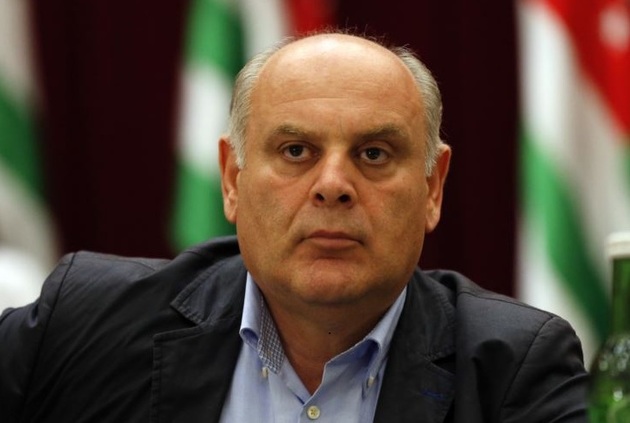Extraordinary elections of the head of Abkhazia ended with the victory of the opposition. Having won more than 55% of the vote, the candidate from the united opposition Aslan Bzhaniya has already announced his readiness to start reforms, since the current political crisis in the republic, which culminated in January of this year, is caused by unresolved problems in the governance structures of Abkhazia.
The victory of the opposition demonstrated a peculiar political reverse, because, despite the popularity of Bzhania, it is strongly associated with the name of Alexander Ankvab, whose presidency was ended as a result of a similar political crisis. Bzhaniya - a former security official, under Ankvab headed the state security structures of Abkhazia and significantly succeeded in this post.
The idea of fair expression was the leitmotif of the extraordinary elections, as Bzhania was considered the favorite before the elections in January, but did not take part in them due to poor health. Opinion was quickly spread among the public about the malicious poisoning of the leader of the united opposition - more than six months before the vote, Bzhania was hospitalized in an extremely serious condition. Later, two of his guards were hospitalized with similar symptoms. The opposition’s health was critical, but Bzhaniya survived, recovered and resumed political activity after the Abkhaz public expressed dissatisfaction with the results of the January elections and demanded the resignation of Raul Khadzhimba.
Aslan Bzhaniya is set to reform in three directions: personnel policy, national economy and the Ministry of Internal Affairs. Crime rates in the republic are high, and, according to the Ministry of Internal Affairs of Abkhazia for 2019, two-thirds of serious crimes were committed by people who had barely reached adulthood. Officials also often acted as defendants in high-profile scandals. In November last year, parliamentary speaker Valery Kvarchia indirectly confirmed this at an enlarged meeting of the parliamentary committee on public law. Kvarchia noted that the existing system of relations between law enforcement agencies and the executive branch does not work, and corruption is observed in the law enforcement bodies themselves.
Since Bzhaniya is a former security official, it is likely that, first of all, he will deal with the crime problem. Moreover, Alexander Ankvab, who headed the Ministry of Internal Affairs before his presidency, is returning to Abkhazian politics as prime minister. Bzhania is a supporter of the merger of the Ministry of Internal Affairs and the State Security Service, since it considers it necessary to optimize the security system and the rule of law, including eradicating corruption among the security forces, since semi-blockade Abkhazia needs effective and executive management.
This is also the reason for the reform of the government apparatus and other governance structures of Abkhazia. The experience of the last six years has shown that in a closed political space, there is a high probability of a clan management system forming that adversely affects the policy of allocating resources of Abkhazia and its budget, which suffers from a chronic deficit.
Bzhaniya intends to conduct a deep inventory and assessment of resort property, as the question arose a long time ago why even in the most profitable tourism sector of the Abkhazian economy the owners who have close contacts with government representatives own the most profitable resort facilities. A republic, which is in a state of unresolved conflict and limited in many economic spheres, should pay increased attention to the fight against the shadow sector of the economy. The opacity of the incomes of part of the political and business elite forces society to demand the introduction of progressive legislation, including the luxury tax inconceivable for semi-blockade Abkhazia.
As for the issues of strategic cooperation between Russia and Abkhazia, it will not undergo significant changes, despite the fact that Bzhaniya, in contrast to Khadzhimba, is more conservative. In relations with Georgia, the negotiation process may restart, as Bzhania is guided by pragmatic views on the nature of the relationship between Sukhumi and Tbilisi. He does not hide his interest in resuming railway communication through the territory of Abkhazia, which will allow the republic to take advantage of the opportunities of the international transport corridor, but this process requires a delicate approach to charging transit fees, adopting common rules for freight transportation, etc.






